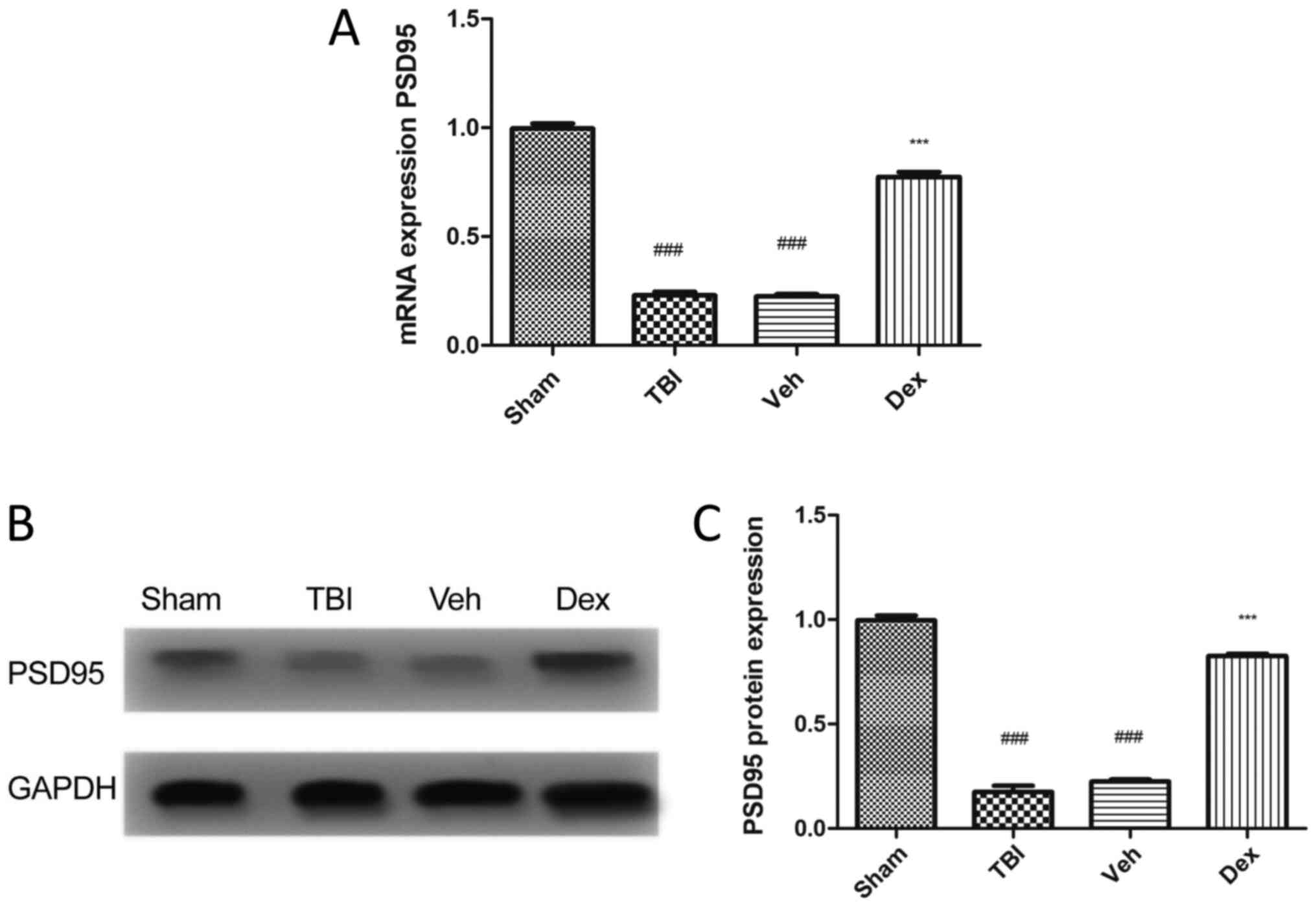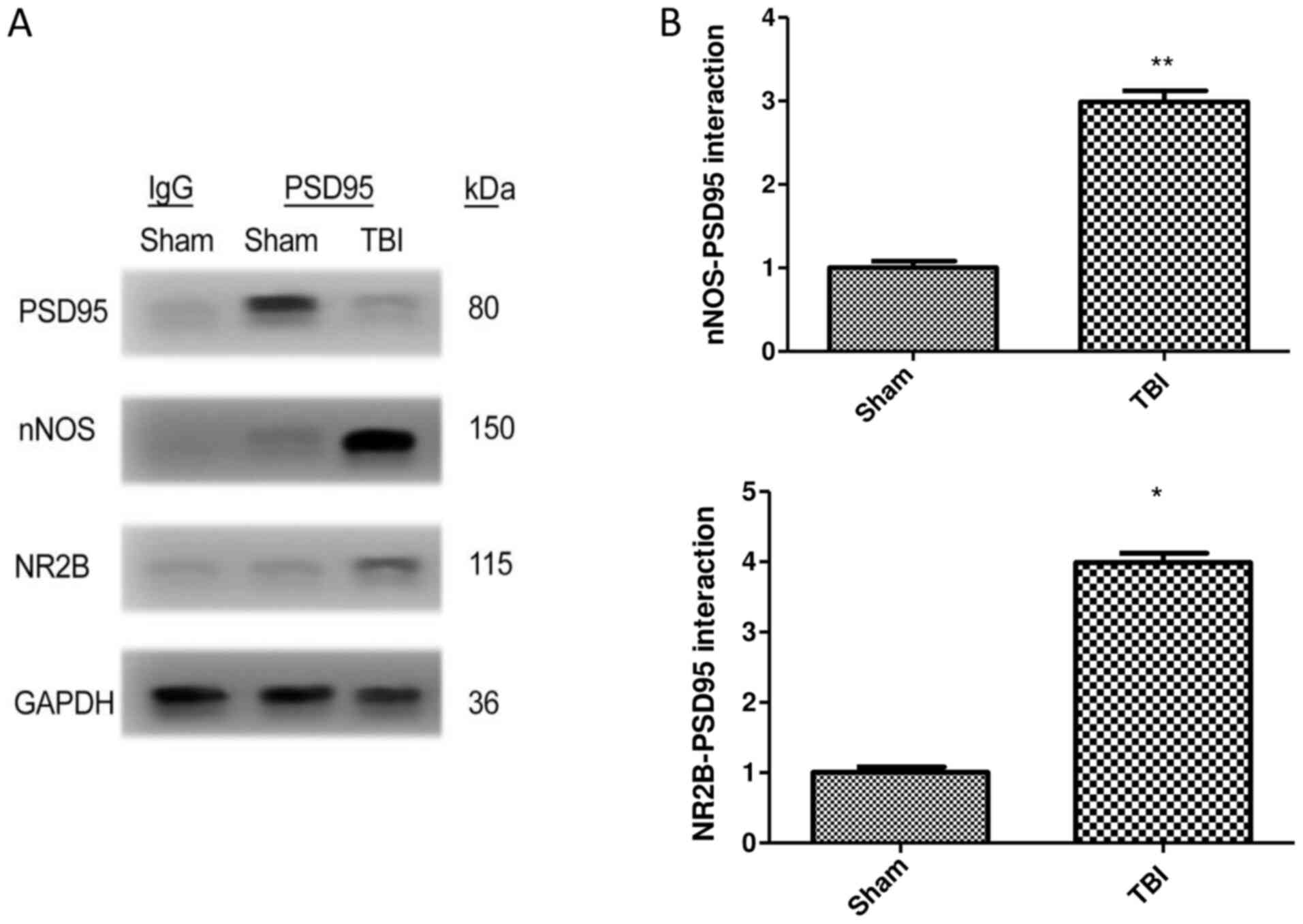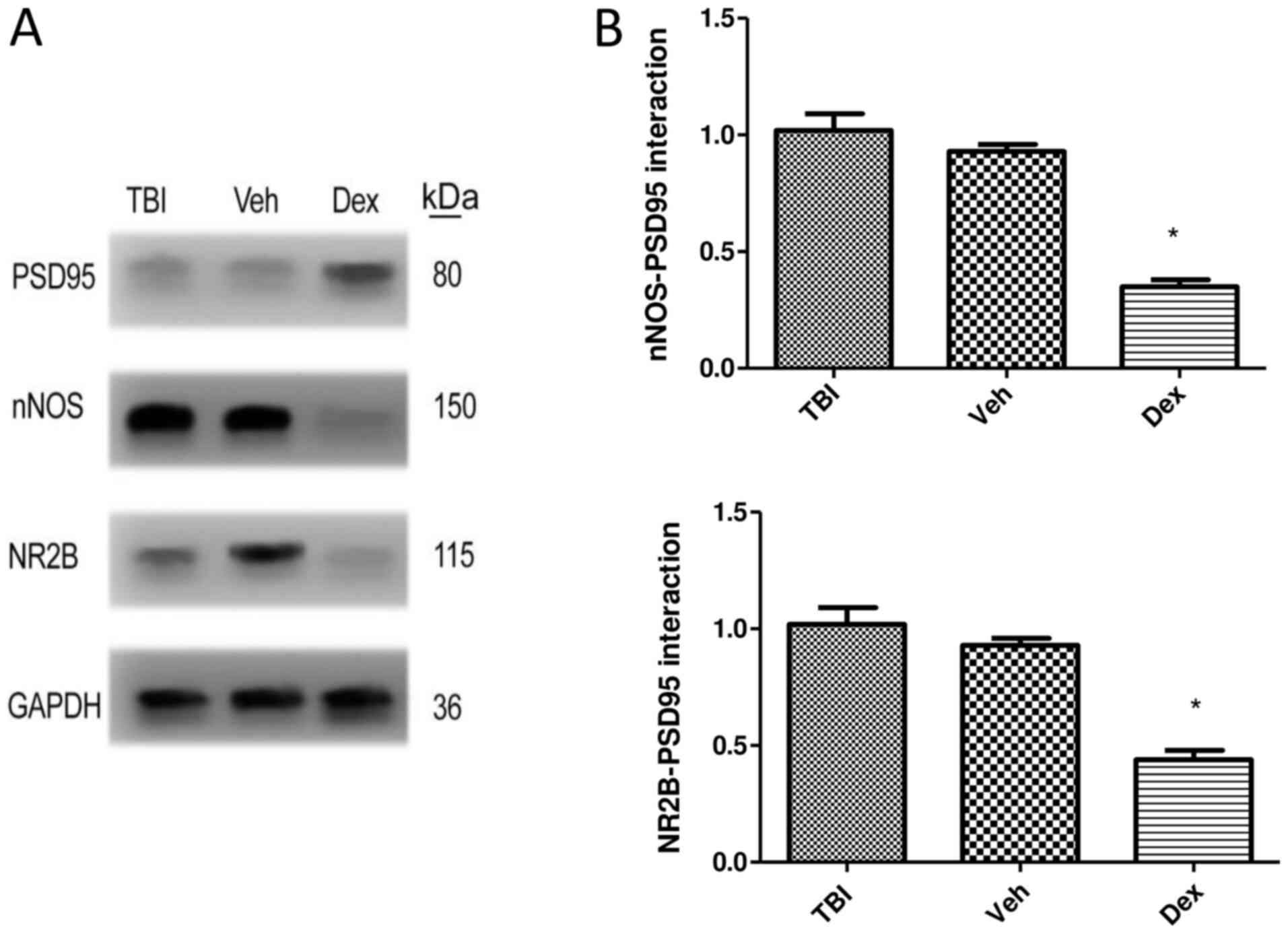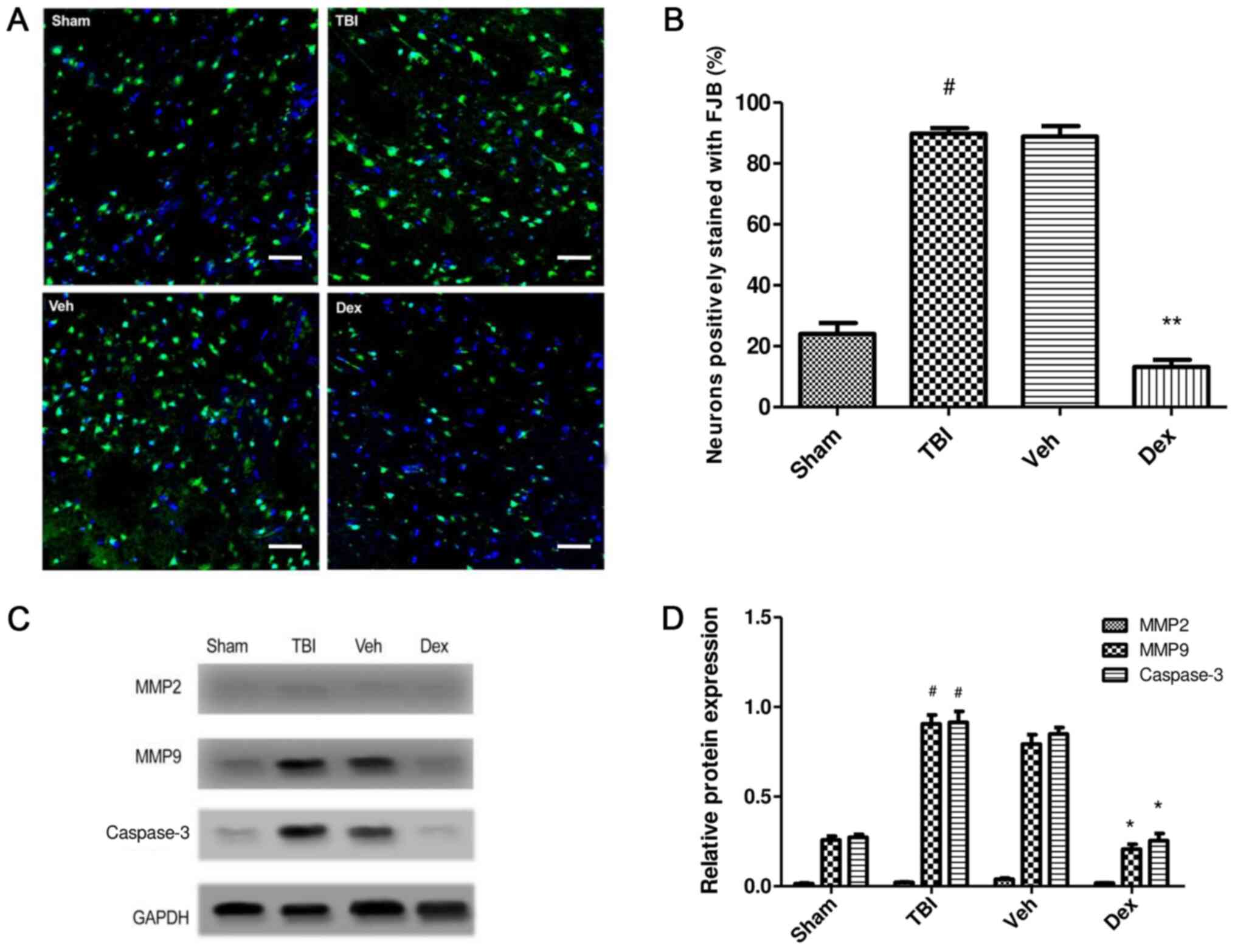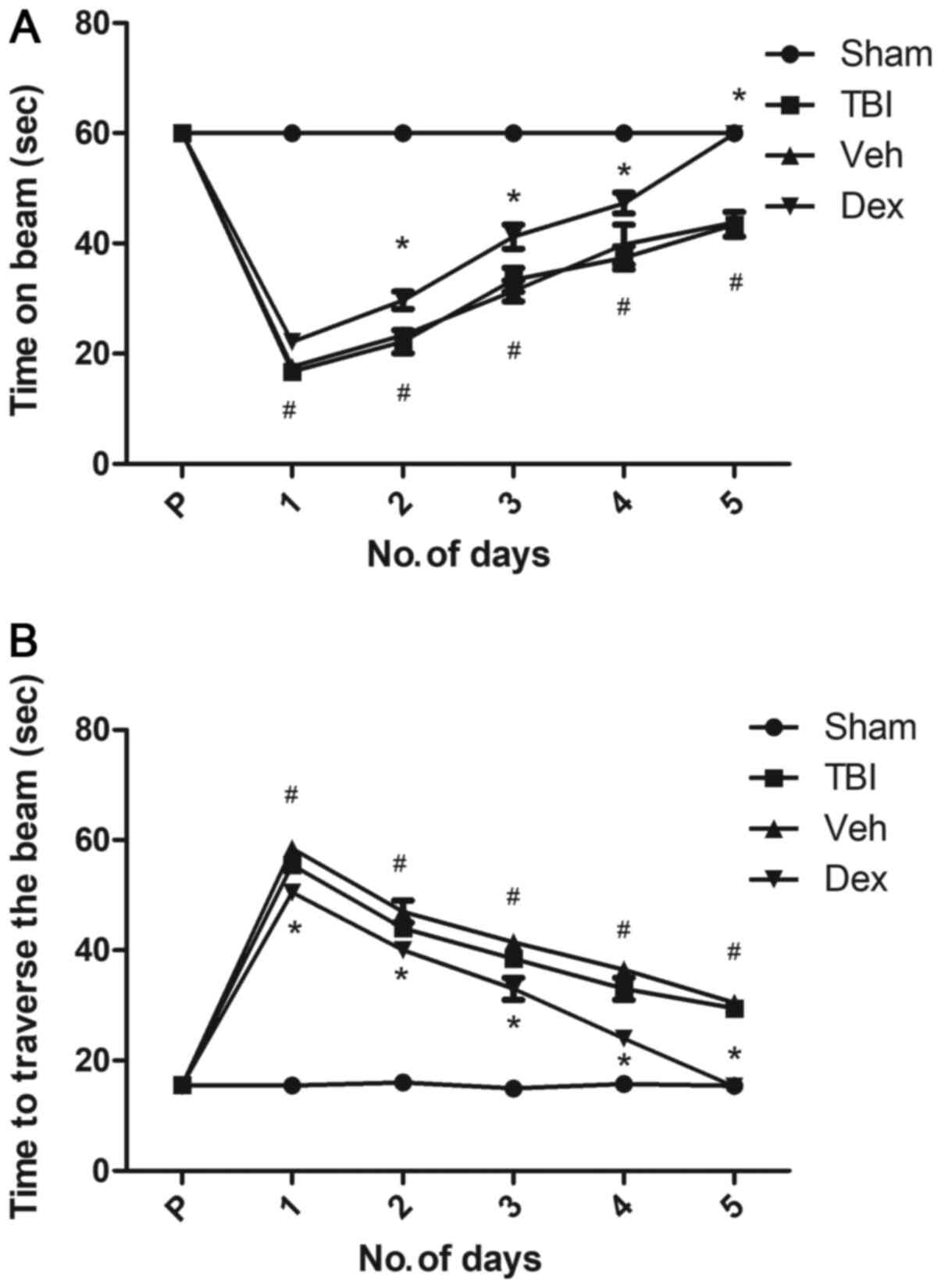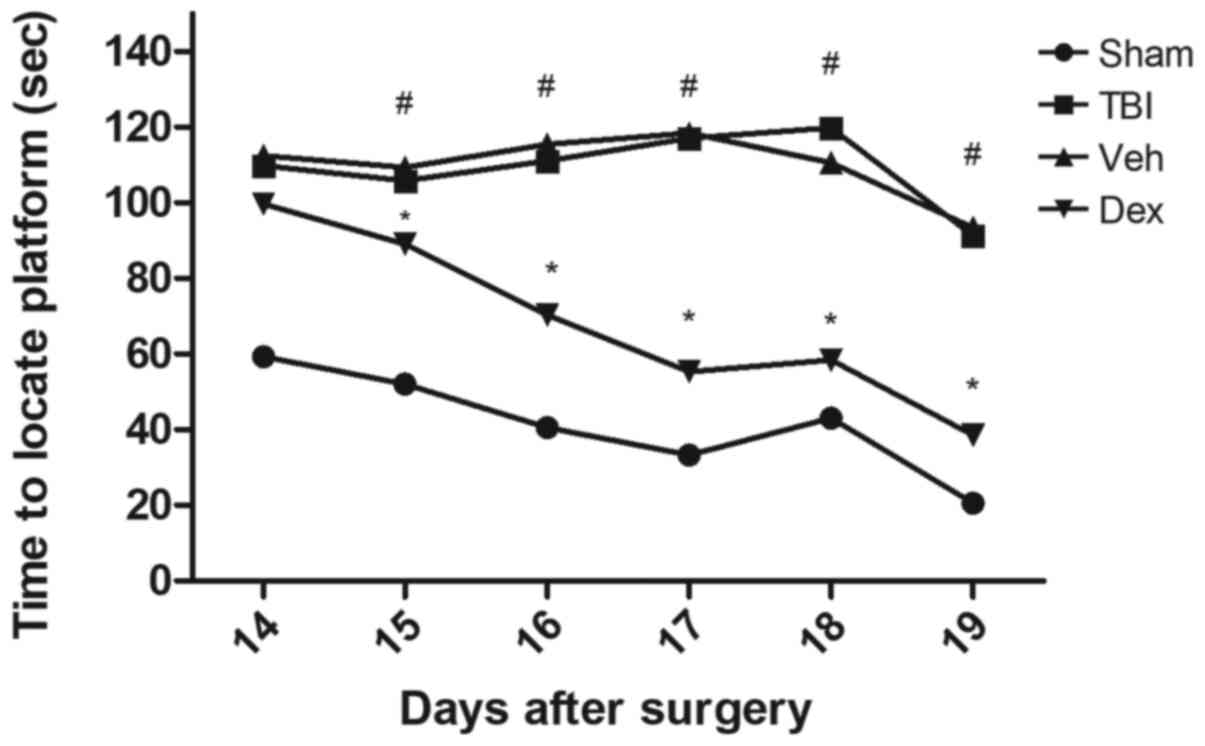|
1
|
Dewan MC, Rattani A, Gupta S, Baticulon
RE, Hung YC, Punchak M, Agrawal A, Adeleye AO, Shrime MG, Rubiano
AM, et al: Estimating the global incidence of traumatic brain
injury. J Neurosurg. 1:1–18. 2018.PubMed/NCBI View Article : Google Scholar
|
|
2
|
Blennow K, Brody DL, Kochanek PM, Levin H,
McKee A, Ribbers GM, Yaffe K and Zetterberg H: Traumatic brain
injuries. Nat Rev Dis Primers. 2(16084)2016.PubMed/NCBI View Article : Google Scholar
|
|
3
|
Stocchetti N and Zanier ER: Chronic impact
of traumatic brain injury on outcome and quality of life: A
narrative review. Crit Care. 20(148)2016.PubMed/NCBI View Article : Google Scholar
|
|
4
|
Sheriff FG and Hinson HE: Pathophysiology
and clinical management of moderate and severe traumatic brain
injury in the ICU. Semin Neurol. 35:42–49. 2015.PubMed/NCBI View Article : Google Scholar
|
|
5
|
Joseph B, Haider A and Rhee P: Traumatic
brain injury advancements. Curr Opin Crit Care. 21:506–511.
2015.PubMed/NCBI View Article : Google Scholar
|
|
6
|
Corps KN, Roth TL and McGavern DB:
Inflammation and neuroprotection in traumatic brain injury. JAMA
Neurol. 72:355–362. 2015.PubMed/NCBI View Article : Google Scholar
|
|
7
|
Rodríguez-Rodríguez A, Egea-Guerrero JJ,
Murillo-Cabezas F and Carrillo-Vico A: Oxidative stress in
traumatic brain injury. Curr Med Chem. 21:1201–1211.
2014.PubMed/NCBI View Article : Google Scholar
|
|
8
|
Mckee AC and Daneshvar DH: The
neuropathology of traumatic brain injury. Handb Clin Neurol.
127:45–66. 2015.PubMed/NCBI View Article : Google Scholar
|
|
9
|
Nakayama K, Kiyosue K and Taguchi T:
Diminished neuronal activity increases neuron-neuron connectivity
underlying silent synapse formation and the rapid conversion of
silent to functional synapses. J Neurosci. 25:4040–4051.
2005.PubMed/NCBI View Article : Google Scholar
|
|
10
|
Merlo L, Cimino F, Angileri FF, La Torre
D, Conti A, Cardali SM, Saija A and Germanò A: Alteration in
synaptic junction proteins following traumatic brain injury. J
Neurotrauma. 31:1375–1385. 2014.PubMed/NCBI View Article : Google Scholar
|
|
11
|
Travaglia A, Bisaz R, Cruz E and Alberini
CM: Developmental changes in plasticity, synaptic, glia and
connectivity protein levels in rat dorsal hippocampus. Neurobiol
Learn Mem. 135:125–138. 2016.PubMed/NCBI View Article : Google Scholar
|
|
12
|
Keith D and El-Husseini A: Excitation
control: Balancing PSD-95 function at the synapse. Front Mol
Neurosci. 1(4)2008.PubMed/NCBI View Article : Google Scholar
|
|
13
|
Christopherson KS, Hillier BJ, Lim WA and
Bredt DS: PSD-95 assembles a ternary complex with the
N-methyl-D-aspartic acid receptor and a bivalent neuronal NO
synthase PDZ domain. J Biol Chem. 274:27467–27473. 1999.PubMed/NCBI View Article : Google Scholar
|
|
14
|
Mo SF, Liao GY, Yang J, Wang MY, Hu Y,
Lian GN, Kong LD and Zhao Y: Protection of neuronal cells from
excitotoxicity by disrupting nNOS-PSD95 interaction with a small
molecule SCR-4026. Brain Res. 1648:250–256. 2016.PubMed/NCBI View Article : Google Scholar
|
|
15
|
Dahmani S, Rouelle D, Gressens P and Mantz
J: Characterization of the postconditioning effect of
dexmedetomidine in mouse organotypic hippocampal slice cultures
exposed to oxygen and glucose deprivation. Anesthesiology.
112:373–383. 2010.PubMed/NCBI View Article : Google Scholar
|
|
16
|
Lv J, Ou W, Zou XH, Yao Y and Wu JL:
Effect of dexmedetomidine on hippocampal neuron development and
BDNF-TrkB signal expression in neonatal rats. Neuropsychiatr Dis
Treat. 12:3153–3159. 2016.PubMed/NCBI View Article : Google Scholar
|
|
17
|
Gao X, Deng-Bryant Y, Cho W, Carrico KM,
Hall ED and Chen J: Selective death of newborn neurons in
hippocampal dentate gyrus following moderate experimental traumatic
brain injury. J Neurosci Res. 86:2258–2270. 2008.PubMed/NCBI View Article : Google Scholar
|
|
18
|
Wu J, Vogel T, Gao X, Lin B, Kulwin C and
Chen J: Neuroprotective effect of dexmedetomidine in a murine model
of traumatic brain injury. Sci Rep. 8(4935)2018.PubMed/NCBI View Article : Google Scholar
|
|
19
|
Kilkenny C, Browne W, Cuthill IC, Emerson
M and Altman DG: National Centre for the Replacement, Refinement
and Reduction of Animals in Research. Animal research: Reporting
in vivo experiments-the ARRIVE guidelines. J Cereb Blood
Flow Metab. 31:991–993. 2011.PubMed/NCBI View Article : Google Scholar
|
|
20
|
American Veterinary Medical Association:
AVMA Guidelines for the Euthanasia of Animals: 2013 Edition.
American Veterinary Medical Association, Schaumburg, IL, 2013.
|
|
21
|
Livak KJ and Schmittgen TD: Analysis of
relative gene expression data using real-time quantitative PCR and
the 2(-Delta Delta C(T)) Method. Methods. 25:402–408.
2001.PubMed/NCBI View Article : Google Scholar
|
|
22
|
Luong TN, Carlisle HJ, Southwell A and
Patterson PH: Assessment of motor balance and coordination in mice
using the balance beam. J Vis Exp. 49(pii: 2376)2011.PubMed/NCBI View
Article : Google Scholar
|
|
23
|
Hausser N, Johnson K, Parsley MA, Guptarak
J, Spratt H and Sell SL: Detecting behavioral deficits in rats
after traumatic brain injury. J Vis Exp. 131(56044)2018.PubMed/NCBI View
Article : Google Scholar
|
|
24
|
Guidi M and Foster TC: Behavioral model
for assessing cognitive decline. Methods Mol Biol. 829:145–153.
2012.PubMed/NCBI View Article : Google Scholar
|
|
25
|
Oddo M, Crippa IA, Mehta S, Menon D, Payen
JF, Taccone FS and Citerio G: Optimizing sedation in patients with
acute brain injury. Crit Care. 20(128)2016.PubMed/NCBI View Article : Google Scholar
|
|
26
|
Flower O and Hellings S: Sedation in
traumatic brain injury. Emerg Med Int. 2012(637171)2012.PubMed/NCBI View Article : Google Scholar
|
|
27
|
Bejian S, Valasek C, Nigro JJ, Cleveland
DC and Willis BC: Prolonged use of dexmedetomidine in the
paediatric cardiothoracic intensive care unit. Cardiol Young.
19:98–104. 2009.PubMed/NCBI View Article : Google Scholar
|
|
28
|
Gu Z, Kaul M, Yan B, Kridel SJ, Cui J,
Strongin A, Smith JW, Liddington RC and Lipton SA: S-nitrosylation
of matrix metalloproteinases: Signaling pathway to neuronal cell
death. Science. 297:1186–1190. 2002.PubMed/NCBI View Article : Google Scholar
|
|
29
|
Wang Y, Han R and Zuo Z: Dexmedetomidine
post-treatment induces neuroprotection via activation of
extracellular signal-regulated kinase in rats with subarachnoid
haemorrhage. Br J Anaesth. 116:384–392. 2016.PubMed/NCBI View Article : Google Scholar
|
|
30
|
Shen M, Wang S, Wen X, Han XR, Wang YJ,
Zhou XM, Zhang MH, Wu DM, Lu J and Zheng YL: Dexmedetomidine exerts
neuroprotective effect via the activation of the PI3K/Akt/mTOR
signaling pathway in rats with traumatic brain injury. Biomed
Pharmacother. 95:885–893. 2017.PubMed/NCBI View Article : Google Scholar
|
|
31
|
Schoeler M, Loetscher PD, Rossaint R,
Fahlenkamp AV, Eberhardt G, Rex S, Weis J and Coburn M:
Dexmedetomidine is neuroprotective in an in vitro model for
traumatic brain injury. BMC Neurol. 12(20)2012.PubMed/NCBI View Article : Google Scholar
|
|
32
|
Zhang MH, Zhou XM, Cui JZ, Wang KJ, Feng Y
and Zhang HA: Neuroprotective effects of dexmedetomidine on
traumatic brain injury: Involvement of neuronal apoptosis and HSP70
expression. Mol Med Rep. 17:8079–8086. 2018.PubMed/NCBI View Article : Google Scholar
|
|
33
|
Zhang Y and Kimelberg HK: Neuroprotection
by alpha 2-adrenergic agonists in cerebral ischemia. Curr
Neuropharmacol. 3:317–323. 2005.PubMed/NCBI View Article : Google Scholar
|
|
34
|
Mori-Okamoto J, Namii Y and Tatsuno J:
Subtypes of adrenergic receptors and intracellular mechanisms
involved in modulatory effects of noradrenaline on glutamate. Brain
Res. 539:67–75. 1991.PubMed/NCBI View Article : Google Scholar
|
|
35
|
Luo P, Fei F, Zhang L, Qu Y and Fei Z: The
role of glutamate receptors in traumatic brain injury: Implications
for postsynaptic density in pathophysiology. Brain Res Bull.
85:313–320. 2011.PubMed/NCBI View Article : Google Scholar
|
|
36
|
Cheung ZH and Ip NY: From understanding
synaptic plasticity to the development of cognitive enhancers. Int
J Neuropsychopharmacol. 14:1247–1256. 2011.PubMed/NCBI View Article : Google Scholar
|
|
37
|
Sultana R, Banks WA and Butterfield DA:
Decreased levels of PSD95 and two associated proteins and increased
levels of BCl2 and caspase 3 in hippocampus from subjects with
amnestic mild cognitive impairment: Insights into their potential
roles for loss of synapses and memory, accumulation of Abeta, and
neurodegeneration in a prodromal stage of alzheimer's disease. J
Neurosci Res. 88:469–477. 2010.PubMed/NCBI View Article : Google Scholar
|
|
38
|
Shao CY, Mirra SS, Sait HB, Sacktor TC and
Sigurdsson EM: Postsynaptic degeneration as revealed by PSD-95
reduction occurs after advanced Aβ and tau pathology in transgenic
mouse models of Alzheimer's disease. Acta Neuropathol. 122:285–292.
2011.PubMed/NCBI View Article : Google Scholar
|
|
39
|
Wakade C, Sukumari-Ramesh S, Laird MD,
Dhandapani KM and Vender JR: Delayed reduction in hippocampal
post-synaptic density protein-95 expression temporally correlates
with cognitive dysfunction following controlled cortical impact in
mice. J Neurosurg. 113:1195–1201. 2010.PubMed/NCBI View Article : Google Scholar
|
|
40
|
Sen T, Gupta R, Kaiser H and Sen N:
Activation of PERK elicits memory impairment through inactivation
of CREB and downregulation of PSD95 after traumatic brain injury. J
Neurosci. 37:5900–5911. 2017.PubMed/NCBI View Article : Google Scholar
|
|
41
|
Wang CF, Zhao CC, Jiang G, Gu X, Feng JF
and Jiang JY: The role of posttraumatic hypothermia in preventing
dendrite degeneration and spine loss after severe traumatic brain
injury. Sci Rep. 6(37063)2016.PubMed/NCBI View Article : Google Scholar
|















